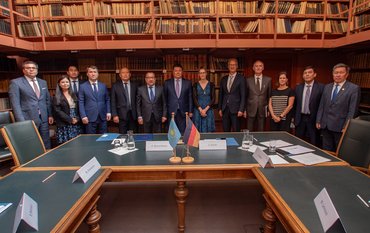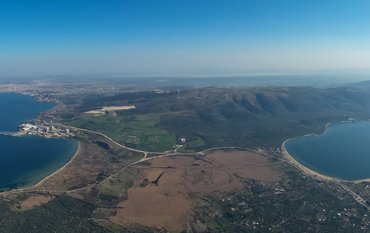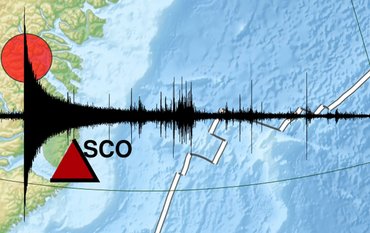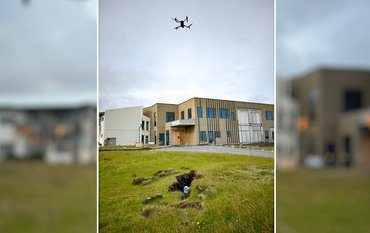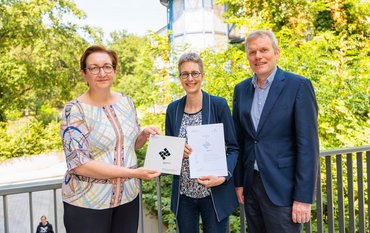20.03.2020 | Minimum operation at GFZ while securing basic services
On Thursday, 19 March, the Executive Board of the German Research Centre for Geosciences GFZ informed its employees that the GFZ will go into "minimal operation" from Monday, 23 March.
Work on the Telegrafenberg campus or in the branch offices is then only possible in exceptional cases and after prior consultation with superiors. The Executive Board has asked all researchers and technical staff to suspend laboratory and field work and in particular to shut down ongoing laboratory experiments until March 20, i.e. today. During minimum operation, all laboratory work will be suspended and the staff will work from home. All employees on foreign assignments were already asked to return home on Monday, 16 March. Currently, there are still about 30 people on their way back.
There are a number of important services that the GFZ continues to provide for science and society. These include global earthquake monitoring via the GEOFON network and its contribution to many early warning systems worldwide. Another service is the provision of the kp-index. This was developed to measure the solar particle radiation via its magnetic effects and is now considered an indicator of the energy input from the solar wind into the Earth system. Charlotte Krawczyk, Director of the Department of Geophysics, says: "For both services, we have one or two people on duty each, even during minimum operation. They work largely from the home office and, in the case of work at the GFZ, naturally ensure the necessary social distance".
Several "satellite services" are also of key importance, in particular those for the functioning of Global Navigation Satellite Systems (GNSS). The GFZ is one of ten analysis centres worldwide. The satellite orbits, station coordinates and Earth rotation parameters continuously determined from the data are essential for navigation and positioning on Earth and in space and are a basis for a variety of social and economic activities. A failure of one or more analysis centres could have critical consequences.
The GFZ also contributes to weather forecasting through daily, globally distributed GNSS radiooccultation (RO) measurements. Put simply, signals from satellites such as TerraSAR-X and Tandem-X are used to measure the water vapour content of the atmosphere. The data are sent to national and international weather services.
To maintain operations, manpower is also needed in the area of technical services and IT infrastructure as well as core administrative tasks such as payment of invoices and salaries. Here too, activities are organised in such a way that the risk of infection is minimised ("social distancing").
GFZ's Chairman of the Executive Board, Reinhard Hüttl, says: "The Executive Board and the Board of Directors are very aware of their responsibility for the health of employees and society. Extensive preventive measures were already introduced at the GFZ a few weeks ago. However, the situation in Germany and Europe has worsened to such an extent that the GFZ is now switching to minimal operations. We see ourselves here in line with the German government, which has called on us all to work together to slow down the pandemic". The regulations apply from Monday for an initial period of 14 days until *5 April inclusive. (*Update 4 April 2020: The regulations were extended until 19 April 2020)
Update on 20 April 2020: The minimum operation will continue at least until Sunday, 26 April 2020. The GFZ Executive Board states: "We will use the coming week to draw up an occupational health and safety concept that will enable us to enter into restricted normal operation from 27 April 2020 at the earliest."
The two Board members Reinhard Hüttl and Stefan Schwartze appealed to the workforce: "It is not easy for us to make this decision, but we are in a unique situation worldwide. We call on you to keep up the GFZ spirit in your home office and to take care of your fellow human beings who may not be able to go shopping or need other help".



![[Translate to English:] [Translate to English:] Abror Gafurov von dem Schriftzug "Welcome to Azerbaijan" und den UN und COP Logos](/fileadmin/_processed_/2/5/csm_2024_11_Baku_COP29_Abror_Gafurov_1042faec82.jpeg)


![[Translate to English:] Martin Herold standing in front of the library on the Telegrafenberg](/fileadmin/_processed_/c/d/csm_Martin_Herold_d385ee4dd9.jpeg)
![[Translate to English:] Many people are listening to a presentation in the GFZ lecture hall.](/fileadmin/_processed_/c/a/csm_1_Bild1_hell_b9c0e9f5ed.jpeg)






![[Translate to English:] Both scientists sitting on stools in front of a wall of books in the Telegrafenberg library](/fileadmin/_processed_/6/6/csm_Buiter_Castell_DORA_4_e87cb1ea18.jpeg)
![[Translate to English:] Gruppenbild mit 4 Personen](/fileadmin/_processed_/8/d/csm_20241017_GFZ-Emmerman-Medal-005_web_reinhardtundsommer_21a414fa4a.jpeg)






![[Translate to English:] Ice landscape with five red tents](/fileadmin/_processed_/8/9/csm_Zeltlager_auf_dem_Eis_Urheberin_Jenine_McCutcheon_5ced2d523b.jpeg)



